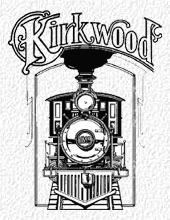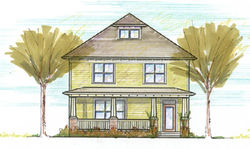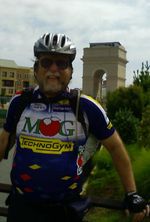Americans are scared of crime. Rightly so.
Economic collapse brings with it all the horsemen of the apocalypse. Hopelessness hardens hearts. Those who have been dehumanized dehumanize.
In the middle of a collapse there is not much to do. You have to defend your own. And with police services being cut, people feel trapped.
This is as true in my own neighborhood as anywhere else. The city cuts back, and so do citizens. The best ideas can go a-glimmering. I got a good example of what happened last week. Someone saw a red truck leaving a crime scene. E-mails flew looking for a red truck. Someone saw one, going through the neighborhood. Someone else got its license plate. Was this the red truck? No one knew, and no one seemed willing to ask. Instead they sent these e-mails, labeled BOLO, and scared each other.
Funny, though. When I was at our community meeting last night the answer was sitting on a table. I picked it up.
It's a directory. It lists the names, addresses, phone numbers, and e-mail contacts for everyone who has joined the group. There are hundreds of names. There are people on every block in the area.
It's time these people organized. Someone needs to contact them, personally, and recruit a family on each block to be a block captain. That captain's job, over time, must be to "fill in the blanks" on the map. That is, knock on doors and learn the names, phone numbers, e-mail addresses (if they have them) and family stories of everyone on their street. It's a great way to make friends.
Be open about what you're doing. Be open about what you're doing with the information. You're fighting crime. You want to see them, and you want them to see you. You want to know them, and have them know you, as well as the people around them. You want them to know that if something happens, or if they just fear something is happening, they can call someone other than 911, as a friend, as a neighbor.
This data gradually becomes a census of the area, but the human contact means more. The better I know my neighbors, and my neighbors know me, the more likely they are to help. Help in this case can mean something as simple as calling 911 if a strange truck starts taking stuff out of the house, or if screams come from that house. It means knowing not only who belongs there, but who doesn't, and that brings with it the courage to confront problems directly.
When we did this on Winter Avenue in the 1980s, before our area gentrified and new white neighbors locked themselves behind TVs and air conditioning, our crime rate was one-third less than that on adjacent streets. The police who urged this course on us were amazed.
Amaze them again.
I have nothing against supporting a security patrol, or buying extra police hours for more regular patrols. But what cops need more than anything is information and support. Block clubs can deliver this.
It costs citizens nothing more than time. Time is something most have when times get tough. Let's use it wisely.












